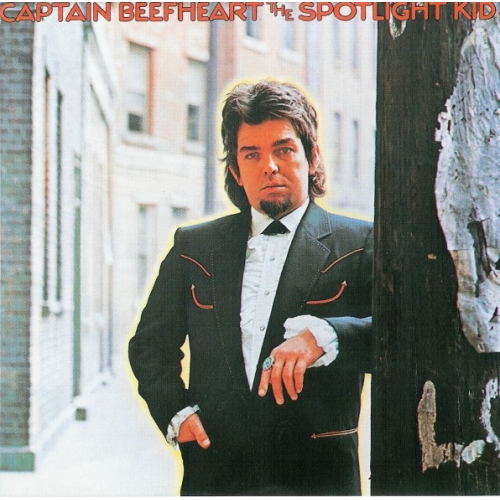4. Captain BeefheartThe Spotlight Kid/Clear Spot

Beefheart was a bit of a dangerous guy. I did know Don Van Vliet quite well during 1972/73 and he was not a very nice man. He was pretty cruel to his musicians, which was pretty hard for them to take because they didn’t have a great opinion of him as a human being, nor as a musician. Don had no musical talent whatsoever, he simply employed other people to translate his maniacal ravings, musically speaking, into something that had a bit of order and discipline.
Lyrically, however, Don did have a great talent and was a vivid painter – literally of course as a pictorial artist in that kind of abstract expressionist style. But he also employed that abstract expressionism in his lyric writing, and that makes him special and very worthwhile in spite of the fact he didn’t leave behind him a group of happy or respectful musicians. It’s rather sad that he was a bully.
So he and Frank Zappa are my two big American, not influences, but revered examples of musical greatness. In Beefheart’s case it was a musically naïve greatness. Spotlight Kid and Clear Spot were the two albums around 1972, when Captain Beefheart and his band supported Jethro Tull when we were doing Thick As A Brick in America. Don called me himself, as Warner Brothers had told him what hotel I was staying in, and he kind of invited himself on tour. I tried to talk him out of it saying, “Don, this is not the passport to success you might think it is,” as audiences can be very cruel to support bands. But he was very insistent and Warner Brothers were desperate for some kind of outlet for Beefheart’s work and pushed for him to come on tour with us, so somewhat reluctantly I agreed. The audience did hate him and he got a rough ride every night. It was not successful for him in any way whatsoever. It was a misguided but interesting liaison.
So it was largely the lyrical qualities of Clear Spot and Spotlight Kid that appealed to you?
Both of those albums were at a point where Don realised he needed to try to be a bit more commercial in his application. The more abstract nature of Trout Mask Replica had critical acclaim but did not, as they say, trouble the charts. I guess he was persuaded by his wife, by Warner Brothers and by people around him that he needed to be more commercial. So he handed the reins more to Mark Boston, otherwise known as Rockette Morton, and the guitar player Zoot Horn Rollo [Bill Harkleroad], who was the most musically organised of the guys.
Those albums did open things up for the band at that time, I think they’re among the finest things Beefheart did. It really worked to join together a more commercial application with the slightly erotic and exotic nature of his more expressionistic work. The song ‘Big Eyed Beans From Venus’ is really excellent, with great guitar playing and a great solo from Zoot Horn Rollo. The whole band did really well and for me it represents the high point of their work. If you combine the two albums and take the best songs from both you’ve got one great album, as they both did suffer from some rather weak material.


